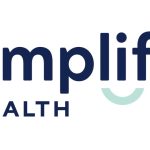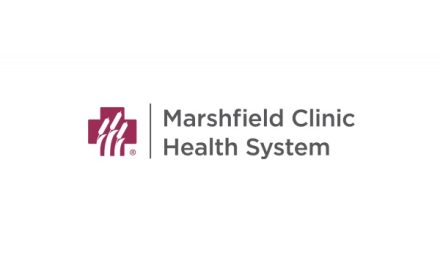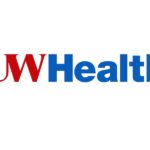
MCW partners with Milwaukee Academy of Science and High School of Health Sciences to DRIVE interest in health research
The Medical College of Wisconsin (MCW) has launched DRIVE, a program pairing high school students at the Milwaukee Academy of Science (MAS) and the High School of Health Sciences (HS2) in Kettle Moraine School District with MCW scientists to engage in public health research. DRIVE, a program created and sponsored by MCW provides high school students with the opportunity to identify a public health issue in the Milwaukee community, conduct scientific research aimed at addressing the issue and draft a project proposal with the possibility of submitting for grant funding.
The overall aim of the partnership is to connect high school students with real scientific work and authentic educational experiences that highlight a path to postsecondary education and career training. The DRIVEprogram also allows students the opportunity to address issues of genuine concern in their communities by using scientific research and methodology.
Throughout the curriculum, DRIVE illustrates to students that careers in research, medicine or public health are attainable, inspiring and rewarding. The program also fosters collaboration between students from different backgrounds to encourage the exchange of thoughts and ideas from a variety of perspectives. Each research group is comprised of students from both MAS and HS2 along with a student advisor to provide expertise and counseling for the project.
“This program speaks to the heart of MCW – investing in our young people to ensure a healthier future for our community. Connecting kids directly with researchers and physicians is one of the most effective means to build confidence, skills and interest in science and medicine,” said John R. Raymond Sr., MD, President and CEO of MCW. “This was the vision of President Emeritus T. Michael Bolger when he founded Milwaukee Academy of Science in 2000 and we will continue to drive that vision forward.”
Student groups have been meeting each Thursday at MCW since September 2015 to work on their respective projects under the supervision of their MCW advisors. The students are encouraged to utilize MCW resources and laboratories, and to collaborate with MCW faculty and staff to enhance their research projects. By the conclusion of the program, each group is required to submit a project proposal, craft a blog post outlining their respective projects and create a poster board display centered on their findings. Some groups have taken their projects further, creating phone apps, writing grant proposals and initiating the submission for peer-reviewed publication.
The students will present their research as part of MCW’s Community Engagement Week on Friday, April 22 beginning at 8:45 a.m. The DRIVE administrators will also be presenting on the program’s model at 11:40 a.m. The event is free and open to MCW students and faculty, in addition to the public and members of the media. More information about MCW’s Community Engagement Week can be found here.
“In just a few short months, we have witnessed a blossoming of the MAS students engaged in DRIVE. Their enthusiasm for learning has just skyrocketed – and more so, they have made lasting friendships and connections across the city,” said Mike Jones, Chair of the MAS Board of Directors. “The time that MCW faculty, staff and students have invested already has demonstrated enormous returns.
“We are grateful to have this wonderful opportunity. This authentic experience provides students with a rich understanding of the research process,” said Steve Plum, HS2 director. “From these experiences, students have greater insight and vision into their academic future and career path.
A complete list of DRIVE research projects can be found below:
Marc Casati & Alex Dayton: Media Influences: How violence, sexuality and media-fed controversies in social media, television, movies and video games affect us and our relationships
Santana Johnson (MAS) Josh Washington (MAS)
Natalie Hall (MAS) David Washington (MAS)
Madison King (HS2) Thyvin Nash (MAS)
Darius Ware (MAS)
Anna Williams: Sexual Education: Effects of different educational approaches on teen pregnancy rates, STI rates and sexual orientation/identity
Reiauna Taylor (MAS)
Brianna Robinson (MAS)
Breeonna James (MAS)
Melissa Ryan (HS2)
Abigail Hodges: Alternative Energy Sources: New sources, increasing use of clean fuels, decreasing pollution, combating global warming, raising awareness
Quintien Tyra (MAS)
Sayward Gohman-Kramer (HS2)
Cora Hougard (HS2)
Eric Exner: Crime/Trauma: How undiagnosed mental disorders, traumatic experiences and surroundings impact incarceration rates, the risk of developing PTSD, and becoming a victim of human trafficking, etc.
Elsa Kraemer (HS2)
Tatianya Evans (MAS)
Eric Darrah: Superbugs and Antibiotic Resistance: Preventative measures, improved strategies to treat the sick
Virginia Rose McCotry (MAS)
Nicole Hargraves (MAS)
Courtney Roofe (HS2)
Theresa Kimball (HS2)
Mike Harrison: Resources for single mothers in military careers.
Corshay Burnell (MAS)
Norbriana Payne (MAS)
Rachel Krenz (HS2)
Kristen Westdorp: Allergies and Intolerances: Decreasing incidence and creating resources for those who suffer from them
Hannah Fenelon (HS2)
Elleri Schaefer (HS2)
Jerad Grewe (HS2)
Josh Bush (MAS)
Tommy Langer: An application to encourage teens to spend less time on their phones and more time engaged in their surroundings.
LaTyra Barnes (MAS)
Te’Shondra Rush (MAS)
Emily Johnson (HS2)
Rachel Spanton (HS2)
Mark Paterson: Hunger/Poverty/Homelessness: Effects of food deserts, trauma, mental illness, etc. on a community
Riley Burg (HS2)
Ayla Gagne (HS2)
Deron Jackson-Pugh (MAS)
Zoe Hall (MAS)
DRIVE was developed by Co-Directors Jess Olson, PhD, and Tim Sobotka, Executive Sponsor Mara Lord, MBA, and Coordinator Charlotte Running.
About the Medical College of Wisconsin
The Medical College of Wisconsin is the state’s only private medical school and health sciences graduate school. Founded in 1893, it is dedicated to leadership and excellence in education, patient care, research and community engagement. More than 1,200 students are enrolled in MCW’s medical school and graduate school programs in Milwaukee, and 26 medical students are enrolled at MCW-Green Bay. A regional medical education campus is scheduled to open in Central Wisconsin in 2016. MCW’s School of Pharmacy will open in 2017 or 2018 with an initial class size of 60 students. A major national research center, MCW is the largest research institution in the Milwaukee metro area and second largest in Wisconsin. In FY 2014-15, faculty received approximately $158 million in external support for research, teaching, training and related purposes, of which approximately $139 million is for research. This total includes highly competitive research and training awards from the National Institutes of Health (NIH). Annually, MCW faculty direct or collaborate on more than 3,200 research studies, including clinical trials. Additionally, more than 1,500 physicians provide care in virtually every specialty of medicine for more than 525,000 patients annually.





